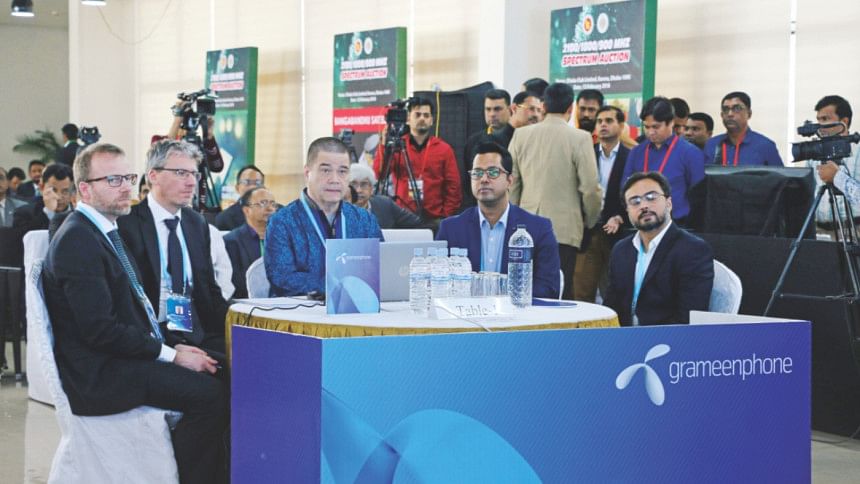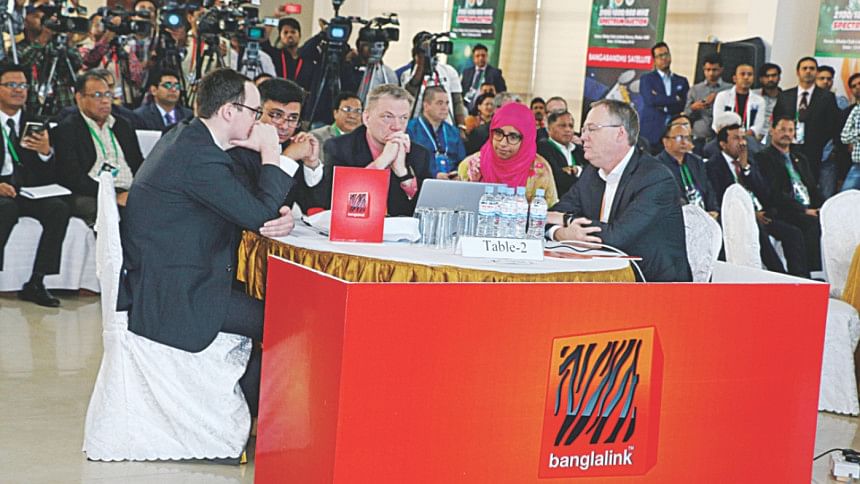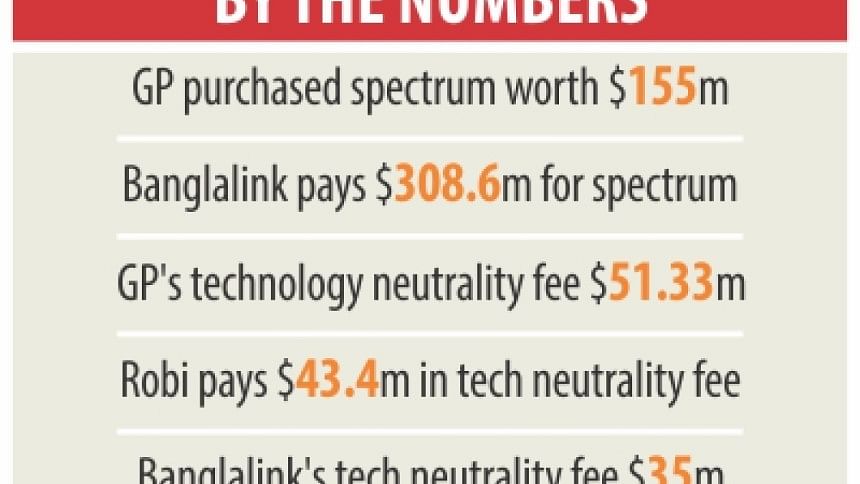Govt earns $600m from spectrum sale

The government is set to earn about $593.33 million from spectrum auction and offering technological neutrality to the top three mobile operators, which is less than half of its target.
The telecom regulator had targeted to collect Tk 11,000 crore ($1,340 million) from the spectrum auction and technology neutrality.
The Bangladesh Telecommunication Regulatory Commission put up a total of 46.4 MHz spectrum in different three bands for auction but less than 30 percent was purchased by the operators.

“We are not happy,” said Shahjahan Mahmood, chairman of the BTRC, adding that the operators will have another opportunity to grab spectrum at the same price within next six months.
Mahmood also said he is quite sure the operators need more spectrum for ensuing quality service. “Definitely they will come to us again. Then, the unsold spectrums would be sold,” he added.
TIM Nurul Kabir, secretary general of the Association of Mobile Telecom Operators of Bangladesh, who attended the spectrum auction held at Dhaka Club yesterday as an observer, said the government could have earned more were the floor price lower.
“We failed in 3G because of the higher spectrum price,” he added.
Telecom Minister Mustafa Jabbar, who also attended the auction, requested the operators to improve their service quality.
“What the operators are now offering under the name of service is appalling. I cannot even make any calls sitting in my office, and call drops are frequent too,” he added.
The auction yesterday, which saw participation from only Banglalink and Grameephone, fetched $463.6 million.
At the auction, Banglalink took 10.6 Megahertz of spectrum in two bands, 2,100 and 1,800. The operator's expenditure was $308.6 million. Grameenphone purchased 5MHz from the 1,800 band for $155 million.

Both the operators will pay 60 percent of the amount today and the rest in instalment, according to the guideline. For instalments, yesterday's US dollar rate would be used, which was Tk 82.90. The regulator will also pocket $129.73 million from allowing technology neutrality to Grameephone, Robi and Banglalink.
Technology neutrality allows operators to offer either of 2G, 3G or 4G services from any band they see fit, a facility that helps in reducing the operational costs and improving the service quality.
Though Robi sat out the spectrum auction, it forked out $43.4 million in first week of December to obtain technology neutrality for its spectrum.
Grameenphone will pay $51.33 million and Banglalink $35 million for the same facility.
The operators might also have to pay another 10 percent as value-added tax, and the National Board of Revenue has already sent a proposal to the finance ministry on the matter.

They will have to pay another Tk 10 crore for obtaining the 4G licence, whose tenure will be for 15 years.
The licences will be awarded in an event on February 19, taking Bangladesh into the fourth generation data service era.
The top three operators have completed their preparations for 4G roll-out and have already launched campaigns to drum up excitement for the forthcoming technology.
Grameenphone and Banglalink said they will roll out their 4G service in some big cities including Dhaka and Chittagong within minutes of getting the licence. After the auction Banglaink Chief Executive Erik Aas said they can guarantee that their service quality will improve and customers will be pleased.
“We have been investing a lot for offering customers a digital life and in the next few years we will allot $1 billion to improve the service quality,” he added. After the new allotment, Banglalink now has 30.6 MHz spectrum in different three bands.
As of yesterday, Grameenphone's spectrum volume stands at 37 MHz. Grameenphone's CEO Michael Foley said they are fully ready to offer 4G service.
Robi's Managing Director and CEO Mahtab Uddin Ahmed said the operator has been ready for 4G roll-out since December last year.
“As soon as we get the licence, we would be able to take the 4G service to greater number of cities than the competitors. Given the amount of spectrum we have, we would be one step ahead of the rest in offering quality 4G service.”
Ahmed, however, feels the lack of 4G-enabled devices in the market may stymie the growth of 4G use.
The operator has now in total 36.4 MHz spectrum.

 For all latest news, follow The Daily Star's Google News channel.
For all latest news, follow The Daily Star's Google News channel. 



Comments